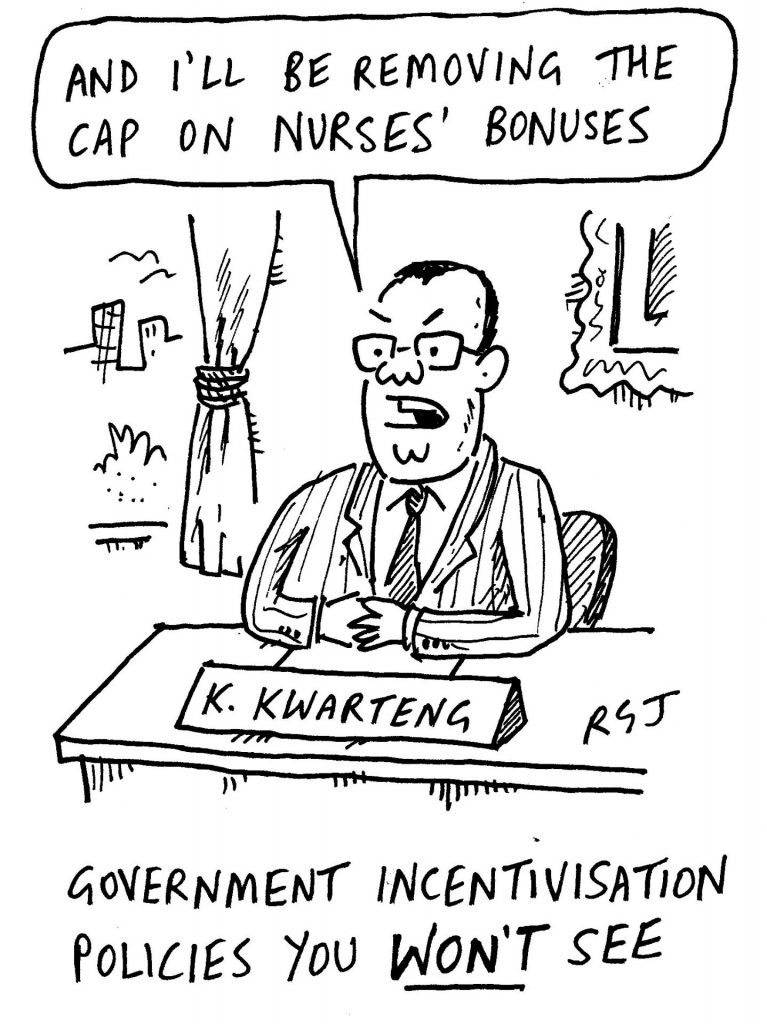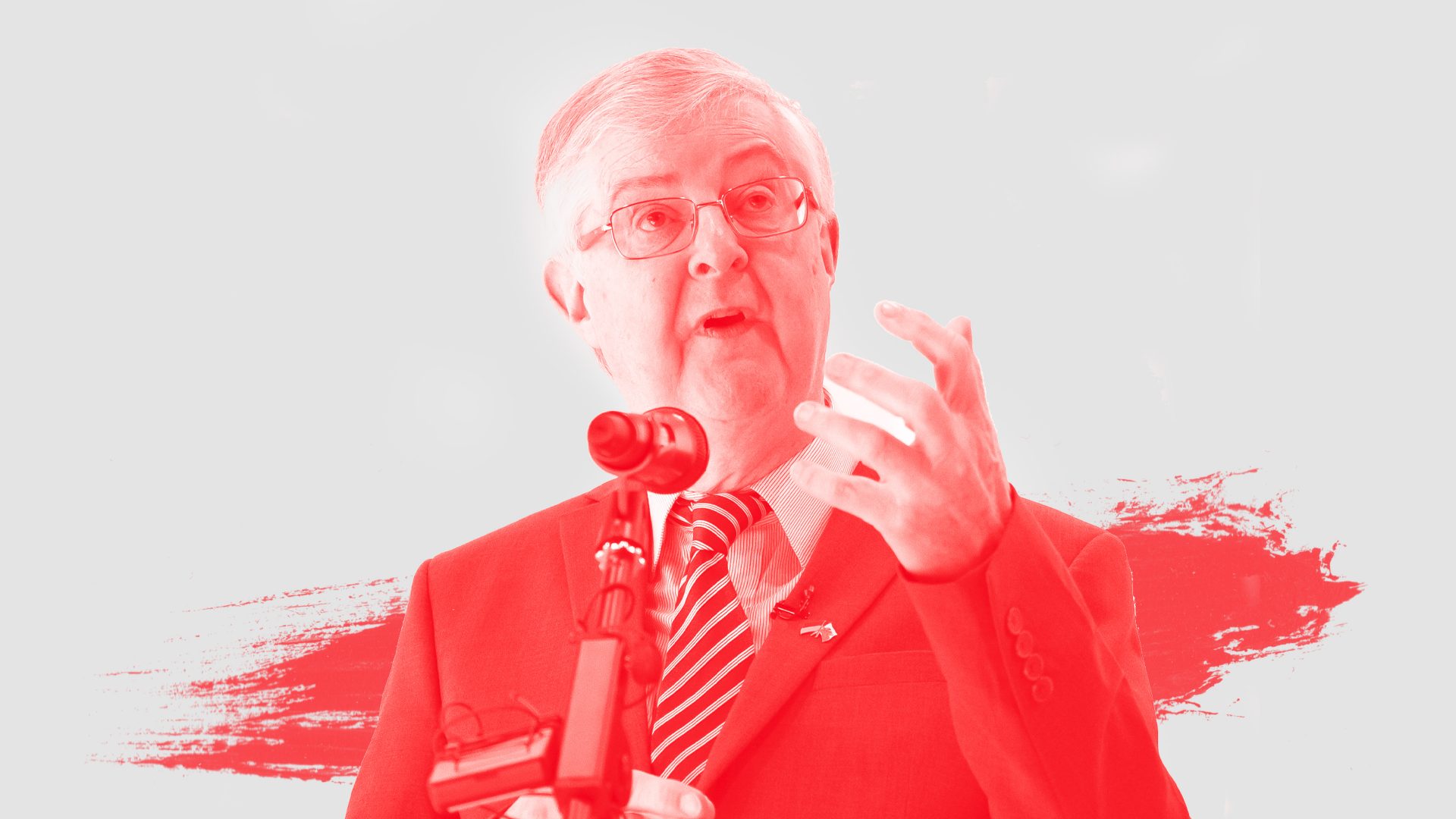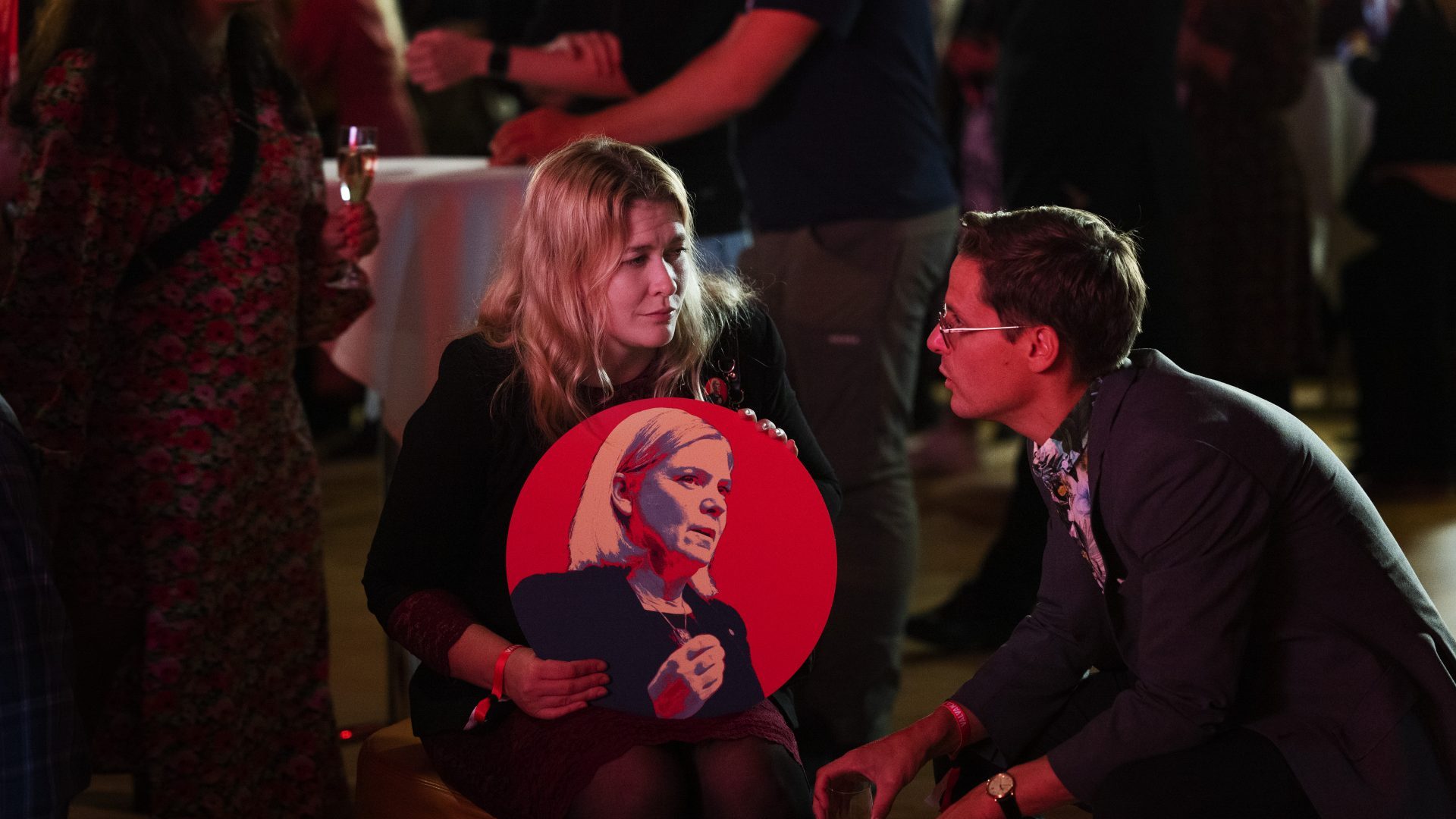“Well, that was a breath of fresh air,” said my partner, Fiona, removing her ear pods as she arrived back from walking the dog. The “that” was the interview Rory Stewart and I had done for our Rest Is Politics podcast with Wales’s first minister, Mark Drakeford. “I can’t remember the last time I felt so confident, and inspired, listening to a Labour politician,” she said.
Confident and inspired! It’s an interesting effect for a politician to be able to create, but having done the interview, I know exactly what she meant. Having listened back, I can identify some of the reasons why he came over so well.
First, he actually answers questions, rather than avoids or dances around them. So when Rory asked him whether he was still “an atheist, republican socialist”, he said he was not brave enough to describe himself as an atheist – agnostic was nearer the mark – but for the rest, yes.
Second, he is polite but firm. When Rory questioned Drakeford’s having “got into bed” with Plaid Cymru, our guest gave a very calm explanation of the electoral system that meant such alliances were inevitable, and then broadened out into a defence of PR, coalition government and further constitutional reform.
He was even polite about Boris Johnson. I sense he loathes Johnson as much as Rory and I do, but you’d be hard-pressed to find the actual words to back that up. Likewise, I gave him plenty of opportunities to push back at some of the New Labour agenda I know he opposed, but his answers always played the ball – ideas, policies, philosophies – not the man, Tony Blair.
Third, there is a humility to him that is rare in political leaders. He could not be further from the “world-beating” rhetoric of which we heard so much during the UK’s Johnson blip. When explaining the delivery of policies by the Welsh government, he seems more focused on the impact on people and politics than on getting credit.
Fourth, he talks up others, rather than himself, and gives a real sense of actually liking the people he serves, pointing out that has not always seemed the case with Labour. Fifth, he is quick to set a historical context, whether explaining why Wales is more left wing than the rest of the UK, or why he is more concerned today than at any time in his lifetime that the union of the four nations of the UK is in peril.
It was also refreshing to hear a Labour politician unapologetic about having opposed Brexit, clear about the “palpable” damage Brexit was doing to the country, and insisting that even if we had to accept the decision, we needed to fight for and win a new and different approach to relations with Europe.
Drakeford neither looks nor sounds like people expect a political leader to look and sound in the modern age. But he has been quietly effective in Wales, and having spoken to him, I now have a much clearer sense as to why.

Unlike Fiona, I would not list ballet in my top 10 cultural interests. I can love the music coming from the orchestra pit, I can admire the phenomenal fitness and athleticism of the dancers, but there is always a part of me that looks at those honed, toned bodies and wonders whether they wouldn’t be better employed on a football field or a pommel horse. So it was as much for the politics as the art that I accepted an invitation to see the United Ukraine Ballet perform Giselle at the London Coliseum.
Before the ballet got under way there was a tribute to the Queen, who had first visited the Coliseum as a 25-year-old, and a rendition of God Save The King. But it was the Ukrainian anthem at the end of the evening, as the two lead dancers held aloft their national flag, that really got the crowd to their feet, and the emotions surging.
At the interval, I overheard a couple of ballet specialists picking holes with elements of the staging, some of the interpretation, and pointing out the gap between the Ukrainians on show and those they normally review. But I hope that, like me, they read the programme on the tube journey home, and that it led them to reflect that they were perhaps being a little unfair.
The cast was predominantly composed of refugees, who had been living mainly in Holland, some of them doubtless traumatised, many with family still in Ukraine. Some of the men had had only days to get up to speed in rehearsals because they had needed special permission from the government to leave the fighting in Ukraine.
So whether it was a great performance technically or not – and I am no judge – it was a really moving and inspiring evening, added to which we took with us two young Ukrainian women living in London, who were visibly moved by the show of support from the audience for their flag, their anthem and their country’s cause.
At times like this, we need the arts more than ever. They remind us what is special about our lives and about the human spirit. That was all on show. And I am very glad we went.
Angela Merkel’s star may have fallen somewhat amid the accusations of naivety in her dealings with Vladimir Putin, and Germany’s reliance on his energy supplies. But she remains one of the most impressive and fascinating political figures of modern times, and last week I learned the view of someone who knows her exceptionally well, as to the secret of her success: “She is utterly uncharmable”.
On first hearing that, it came over as a negative. But it is not. To be charming, but uncharmable … that is, without doubt, a political asset.
David Cameron was one of many male world leaders confident he would be able to charm Merkel to his ways, not least when he was basing his EU referendum strategy on his ability to get more changes and concessions for the UK.
A new book by former French president François Hollande, Bouleversements, makes clear just how naive the former UK prime minister was. Cameron was asking for change in the area of free movement of people and goods, says Hollande, which was so fundamental to the workings of the EU that it was non-negotiable.
Meanwhile, I am sure most TNE readers have sufficient French to understand this line from his book: “Sept ans plus tard, qui peut prétendre que le Royaume-Uni a bénéficié du Brexit?”
The answer is next to nobody. The tragedy is that the few who do pretend are sitting around the cabinet table, living in la-la-land, imagining that Brexiteers who “knew what they were voting for” knew that it was bankers getting bigger bonuses.
So we have just passed the 30th anniversary of Black Wednesday, a day I covered as a Mirror journalist, and which without doubt helped lead to the Labour government for which I then worked. As John Major learned, devaluation of your currency is rarely a political gain!
Yet, as Jonty Bloom spelled out in his excellent piece last week, Major’s Tory successors in power have presided over a huge such devaluation. We know that one of the main causes – the B-word – must never be spoken as politicians explain what is going on. Yet in much of politics and media, it would seem the D-word is also being added to the omertà list.
Let me help. B-word, thanks to these C-words, has led to D-word, which is one of the reasons why the country feels F-worded.




